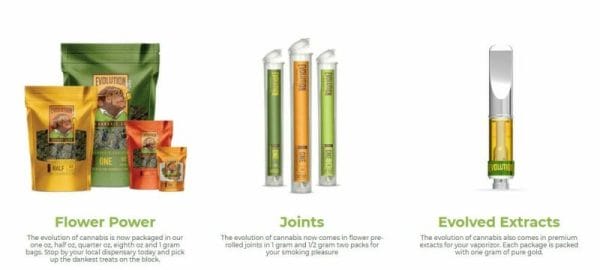CROP Infrastructure (CROP.C) generated sales in Washington State when its tenant Wheeler Park (WP) signed its first bulk cannabis sales agreement, the company announced today.
WP sold the first 150 pounds of its smaller flower and trim grown through the company’s previous soil-based cultivation method for approximately $60,000.
Strains included in sale are:
- Bubba Kush
- Dutch Hawaiian
- Ghost Train
- Green Crack
- Star Killer
- WA Cookies
This bulk cannabis sales agreement compliments WP’s mandate of positioning itself as a premier cannabis flower and extract brand with its line of flower-based cannabis products and pill-form THC and CBD offerings.

WP significantly increased market awareness recently when its Evolution Cannabis (EC) label was featured on High Times’ social media accounts for its large bricks of THC honeycomb.
CROP’s Washington tenant also received positive results from testing of its premium flower line under the EC masthead, recording THCA levels between 29% to 31%.
Going hydroponic
With all its product sold, WP made the final conversion to a 100% hydroponic facility and removed the remaining soil medium.
The cultivator plans a perpetual harvest system with cannabis strains that have a 55 to 60 day flower cycle.
WP’s newly converted facility is expected to turn out 1,000 pounds of dried flower every month.
In order to meet these targets, the company’s master grower modified WP’s cultivation methodology with the introduction of new cloning and pruning regimens to promote healthier and more robust harvests.
WP is also testing a new growth medium for mother plants and clones which management feels exhibits a promising growth pattern and supports improved root development.
The change in medium is expected to increase harvest yields and cloning viability.
WP’s heightened efficiency and product quality may make CROP look good, but in today’s world of legal cannabis, potency and production are nothing compared to a cannabis sales agreement and WP has just that.
“While testing results of our premium product continues to be outstanding, our tenant brand sales team is doing a fantastic job of using bulk sales to cover facility overhead and turn over older less desirable products,” commented CROP CEO, Michael Yorke.
Not only is WP making the sales, it’s doing it economically by maximizing throughput through perpetual harvest at $0.02 kWh, which, according to execs, is the lowest power cost in North America.
Legal cannabis’ new reality
Growing cannabis is a game of numbers as margins continue to tighten.
It doesn’t matter how much you grow if you can’t sell it and if you can’t sell it at a profit there’s no reason to be in the business.
This is the hard truth many LPs are now facing as the global legal cannabis market fails to evolve and grow in ways the pundits and analysts envisioned.
For instance, cannabis farmers in Canada, a country where weed is legal coast-to-coast, continue to burn or destroy eight times more weed than they sell.
Nobody saw that coming.
This hopeful head-in-the-sand approach to cannabis investment will result in a considerable bloodletting across the sector over the next 12 months as institutional short sellers take advantage of legal cannabis’ impending value correction.
CROP doesn’t have its head in the sand. The company recently maximized investor value when it offloaded assets in Jamaica and Italy for a 2000% return.
Also in recent news, CROP subsidiary, Elite Ventures joined forces with MYM Nutriceuticals (MYM.C) in Nevada to farm 120 acres of CBD-rich hemp.
Where do we go from here?
LPs need to show investors sales, margins and happy customers, not production increases, property acquisitions or grower partnerships.
If CROP is able to leverage its relationship with WP and continue making key cannabis sales agreements, it may be able to protect itself from the short-selling frenzy and come out the other end as one of the major purveyors of quality cannabis in the Pacific Northwest.
–Gaalen Engen
Full disclosure: CROP Infrastructure is an Equity.Guru marketing client.

